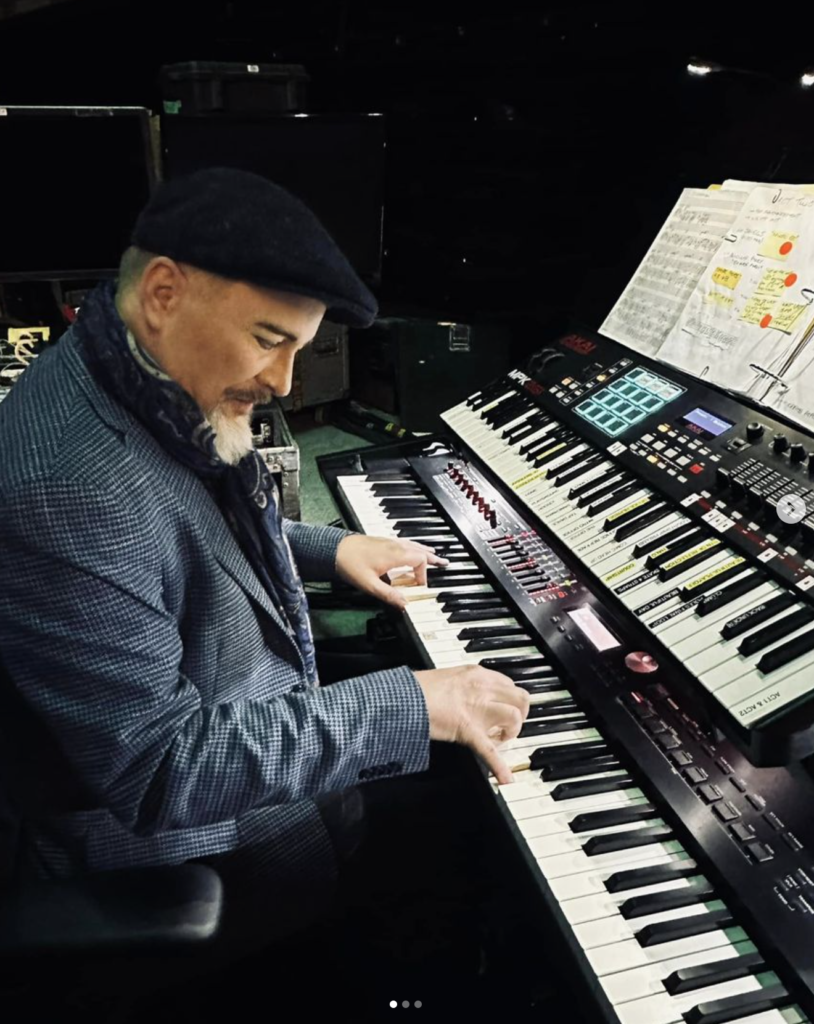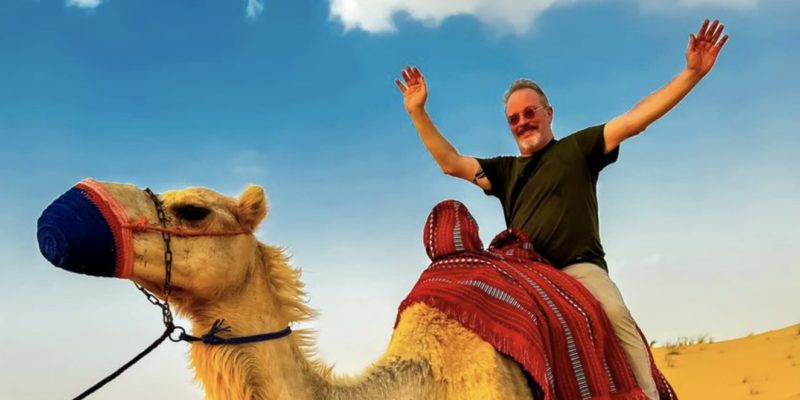Taking time out from his busy schedule, Music Director and Ableton Live specialist Conrad Askland – currently touring the globe with the iconic Cirque du Soleil – kindly stopped by for an interview.
We talk everything from discovering his unique role in music, to achieving high-profile opportunities, writing music, staying inspired, building a presence on YouTube, the value of collaboration, and the lure of ambition. Here’s the conversation in full.
* * *
Conrad – excited to talk with you, thanks for the opportunity! To introduce things, how would you describe your role within the music world?
On live shows I work as a music director and conductor/keyboardist, and in music publishing I work as a music producer and composer. I am also an Ableton Live specialist, which is music software used in many live show performances.
Who or what first inspired you to develop a career within the music and creativity realm?
When I was very young I was classically trained as a boy soprano performing Early Music, Sacred and Baroque music with the Northwest Boychoir. This led to performing with Seattle Opera in many operas and eventually a title role. The start of it all was singing classical music and I was trained in a very old-school and strict classical style. It laid the foundation for everything that would follow.
How did you come to work as a music director – where did that journey start, and what does this job entail?
It was never my intention to be a music director. Truthfully I don’t think I was even aware that music directors existed. I only knew about classical conductors. Because I was a strong piano player, sight reader and improviser – I always ended up being the one to “put together the music” and in time there was this slow realization that “Oh, I’m a music director”
You’ve recently been touring with the globally renowned Cirque du Soleil – how did you first get involved with this, and what does your job entail here?
I started with Cirque du Soleil in 2008 on their resident show in Macau, China called “Zaia”. The job meant that I actually lived in China for 4 years while working as bandleader, keyboardist and accordion player for the show. After that I worked as bandleader on the touring show “Varekai” and now I’m working as bandleader on the Cirque du Soleil ice-skating show “Crystal”. Currently we’re performing in Sao Paulo, Brazil.
The bandleader position for Cirque du Soleil means that you perform in the show, rehearse the musicians and run all the music cues during the show. Running the music cues is very important because so much of the music is tied to specific stunts that the acrobats perform and every show is a little different because we’re performing live with all the other circus artists.
I also do all the computer editing of the music arrangements that we run in conjunction with live musicians during the show. So the job is half performing artist and half computer geek and I love it all of it.
What’s the best thing about travelling the world so intensely with Cirque du Soleil, and conversely, what are some of the challenges?
Almost all of us love to travel or we wouldn’t be working on a world tour. In the past two years we’ve performed across five continents. I take full advantage of our different locations with city tours, seeing live music concerts and doing photography around most of the cities we visit.
The challenge for any touring performer is the balance between work and our off time. One thing we all have in common is that we are extremely driven and focused on our work. It’s very easy to forget that the down time is also an important element of our work-life tour balance. We use the term “self-care” a lot, meaning we need to remember to get outside and enjoy the local culture a bit wherever we are traveling.
You come from a notably musical family, and naturally became a multi-instrumentalist. Is there a particular instrument and/or genre that continues to be your favourite in terms of pure escapism and joy?
Piano and the music of J.S. Bach. He is an endless source of inspiration to me and if I choose music just to listen to for enjoyment, it’s almost always J.S. Bach. In my work I am always listening to new styles of music, practicing new music and learning new orchestration techniques. So the simple pleasure of just listening to J.S. Bach is something I never tire of.
You’re also an Ableton Live Specialist – what made you choose to master Ableton Live above all other DAWs, and what is it about creative production that draws such passion from you?
With recording I used all analog gear until I switched to ProTools back around 1997. I started learning Ableton Live in 2008 because it was the software that Cirque du Soleil uses to run its shows. The more I got into Ableton, the more I was comfortable and enjoyed the process. I went on to get Professional Certification in Ableton Live with Berklee College of Music and now Ableton is my go-to platform for producing music.
“The passion comes from the need to get my ideas into fixed form. If I have a musical idea, it drives me crazy until I can put it in fixed form as music notation or a finished recording. I’ve worked on shows and producing music my entire life so now I don’t question it. It’s just what I do.”

You’re crushing it on YouTube at the moment – what would you say have been the key tools in growing your audience?
I just started learning how to make videos in early 2021 during the pandemic. Video production had always been a blind spot for me so I just chose video production as a new skillset to learn. It’s been a very long and slow climb to learn all the ins and outs of YouTube and video production. I’d say it’s just simply that I kept focused on it and learned as I went along.
The difficult part for me is that my musical styles are so varied that it doesn’t appeal to a single niche audience. No one will like all of my music but most people will like some of it. I have a very diverse and sometimes eclectic fan base. I like the quote “build it and they will come”.
You’ve built a reputation for being incredibly eclectic as a musician – how does a creative session begin when there are no genre or stylistic limits; where do you start?
The hard part is knowing what you want to say. Once you know that, then how to say it usually presents itself. I like the Sondheim rule of “content dictates form” particularly when it comes to shows and musical theatre. I’ll always start with the elements that I know “have to be done”. And once I’ve done those things, then new elements appear that “have to be done” and I keep chipping away like that until I have a final product that feels right.
How important is collaboration and networking, in your view, when building a lasting career in the music industry?
My experience is that there’s two camps in general on that. There’s the group that’s really good at networking and there’s the group that has a strong work ethic. I’m more in the work ethic group. Put me in a large social gathering and I’ll be the one in the corner staring awkwardly at people. But put me one-on-one with someone that has a good creative idea and I will be engaged for hours exploring that idea with them. I don’t do networking but I do forge authentic creative friendships with people.
Do you have a particular ambition or dream in mind for the next couple of years – something new or different you’d like to achieve or work towards?
I follow the river where it take me and it’s usually someplace unforeseen and fun.
Is there anything else we should know?
I would like to be on the production team for the world’s next greatest show.
* * *
Find Conrad Askland on Instagram, TikTok, YouTube & his Website.

